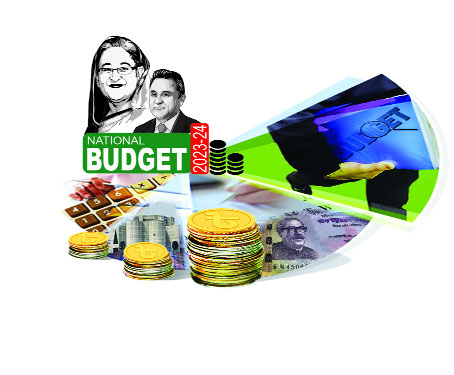Controlling inflation to be main challenge in next budget
Bunch of proposals given by ministries
Mahfuja Mukul: Various ministries and government departments have asked to take necessary steps to stabilize inflation and currency exchange rates in the next budget to deal with the global economic crisis.
It has also warned about excessive spending on subsidies. Besides, emphasis is said to increase employment creation and investment.
Recently in the pre-budget meeting with the Ministry of Finance, a bunch of proposals have been given including these issues. The finance department has already started working on them. This information was found in the relevant sources.
According to sources, the size of the main budget for the current financial year is Tk 6.79trillion. The size of the budget for the financial year 2023-24 may increase to about Tk 7.69 trillion. That is, compared to the current budget, its size may increase by about Tk 90,000 crores. Out of this, the size of the subsidy is more than Tk 100,000 lakh crore.
This estimate of the finance department regarding the budget of the next financial year will be presented today in the meeting of the technical committee on budget estimate examination.
After the approval in this meeting, it was presented in the budget management and resources committee meeting held on April 5 under the chairmanship of Finance Minister AHM Mustafa Kamal. It will be finalized in a meeting chaired by the Prime Minister on May 9. And on June 1, the budget for the financial year 2023-24 will be announced in the National Parliament.
When asked, economist Ahsan H Mansoor said that inflation can’t be controlled if bank loan interest and currency exchange rates are increased and money printing is not stopped. The current government is subsidizing the budget by printing money. You have to get out of there. He further said, the entire macro economy is at risk, which is hampering our growth and investment. On the one hand, the government is not able to reduce inflation because it has to print money.
On the other hand, the loan interest rate has been capped and the dollar is unable to come out of the crisis. And as long as the dollar crisis persists, the supply of goods will not be sufficient. Investment and growth and inflation-none of which can be controlled.
Every year, the finance department holds a series of meetings with all the ministries and departments separately before formulating the budget. This is called pre-budget meeting. In that meeting, the size of the possible expenditure of the ministries was finalized. Besides which sector needs to be given more importance, what kind of steps should be taken-recommendations are taken on these issues. The finance department has prepared a report on the proposals that came out in the recently concluded pre-budget meeting for the financial year 2023-24. Among them, many proposals are coming to deal with the impact of Ukraine-Russia war, economic crisis, oil price increase, inflation and dollar crisis.
It is asked to put more guidelines in the next budget to control inflation. Besides, it has been asked to increase domestic food grain production. The concerned ministries have recommended to strengthen the collection and purchase of paddy from the farmers and to increase the subsidy in agriculture to Tk 30 thousand crore. Although there is a subsidy of Tk 16 thousand crore in agriculture in the current financial year.
Besides, it has been asked to take initiatives to keep inflation at a tolerable level through subsidies and tax incentives in the next financial year. The proposal further states that inflation is hampering growth. In the next budget, which will be given priority – control of inflation or maintaining the trend of growth, any one of the two should be prioritized.
Apart from this, proposals have also been made about the banking sector. It is not increasing especially because the government has put a cap on the current bank interest rate. It is said there, if the interest rate of the bank is less than the inflation, there will be no savings. Bank interest is lower than the current rate of inflation. For this, the interest rate of the bank has to be restructured.
Among the proposals given by the ministry and the department are to keep the subsidy in the electricity sector at a tolerable level, increase the allocation in education and health sector, necessary measures to create employment, increase the allocation in the social security sector and set the personal income tax exemption limit at Tk 4 lakh. Apart from this, the national budget has asked to focus on post-pandemic poverty management with emphasis on the poor people and to emphasize the SME sector for job creation.
According to those concerned, the upcoming budget has become very important to the government due to various reasons. Because this will be the last budget in the third term of the current government. In addition, this budget will have the impact of loans from the International Monetary Fund (IMF). According to the agency’s terms, this initiative to increase the tax GDP ratio to 10.5 percent must be in the new budget. As a result, it will be difficult to meet the conditions of the IMF during the economic crisis. Through this, the government has to fix the revenue target.
According to the stakeholders, there will be a deficit of Tk 20,000 to Tk 24,000 crore in the current budget. In this context, the amount of expenditure should not be increased in the upcoming budget. The rate of revenue collection this year cannot be increased much.
Rare Israeli airstrike in Beirut kills Hezbollah commander and more than a dozen others
International Desk: Israel launched a rare airstrike that killed a senior Hezbollah milita…








